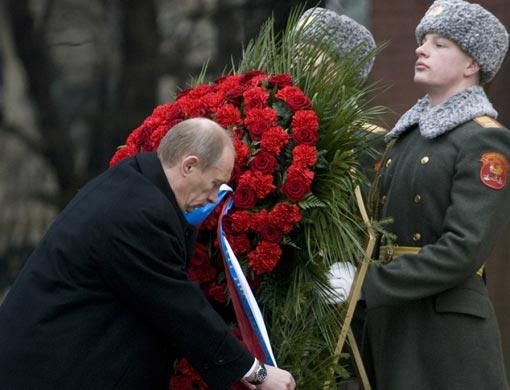Omsk: Russia's Orthodox Church, despite decades of brutal repression under Soviet rule, is putting its trust in the former KGB to ensure that its remarkable religious revival does not fade with the departure of President Vladimir Putin.
In an unusual move, Alexei II, the Church's patriarch, has endorsed deputy prime minister Dmitry Medvedev ahead of next week's presidential election. The influence of his support on Russia's estimated 100 million Orthodox worshippers is immense.
It also illustrates the unholy alliance the Church has forged with the Kremlin since Putin came to power eight years ago.
The president, a proud adherent, has allowed the Orthodox Church to regain much of its Tsarist-era lustre and has won the enthusiastic support of religious leaders in return.
With his hand-picked successor almost guaranteed victory in the March 2 poll, Putin is determined to maintain the arrangement by holding on to the reins of power as prime minister.
The relationship might seem odd. It was the KGB, after all, that led persecution of the Church in Soviet times, when priests were regularly jailed, tortured and executed.
Neither this nor accusations that Putin is restoring many of the attributes of Soviet rule seem to bother Alexei.
Although he has never confirmed it, the patriarch, like the president, is a former KGB agent codenamed Drozdov, according to Soviet archives opened to experts in the 1990s.
Many in the Orthodox hierarchy are also accused of working as KGB informers, a fact that critics say the Church has never fully acknowledged.
"Essentially, the Orthodox Church is one of the only Soviet institutions that has never been reformed," said one priest, who declined to be identified for fear that he could be defrocked.
That fate already befell another colleague, Gleb Yakunin, in the 1990s when he called on Church leaders with KGB links to repent.
Yet it is not just the KGB that binds the Church and the Kremlin. In the Tsarist era, the Church was a committed supporter of the imperial rallying cry "orthodoxy, autocracy and nationhood".
Critics say that Putin, who draws as much of inspiration from imperial Russia as he does from the Soviet Union, has adopted the same mantra - making the president and the Church ideal bedfellows.
Both have blossomed from the relationship. The number of Russians who identify themselves as Orthodox has doubled in the past decade, with two-thirds of the 140 million population proclaiming the faith - quite a feat after seven decades of official atheism.
Priests are regularly seen on television sprinkling holy water on bombers and even nuclear missiles, a blessing that reinforces Putin's own militaristic philosophy.
The Church has even supported Putin's repression of democracy, with a senior bishop last year comparing human rights activists to traitors.
When a prison chaplain suggested that the jailed oligarch Mikhail Khodorkovsky, a personal enemy of the president, was a political prisoner, he was promptly defrocked.
Late last year, Sergei Taratukhin - who served five years in a Soviet gulag for defying the authorities - recanted, falling to his knees in front of television cameras and won a partial reprieve.













